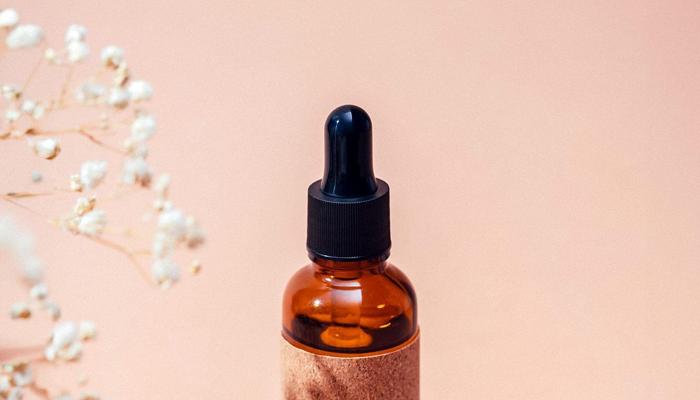Unveil the Mystery: How Diet Shapes Your Skin! Discover the link between your plate and your skin's health. Dive in!
Namaste, readers! Ever wondered why your skin is behaving like a moody Bollywood actor,
throwing tantrums with zits and dryness? Well, the secret might be hiding not in your expensive creams, but right there on your plate!
In India, we're blessed with a vibrant food culture, but sometimes, the very spices and sweets we love can play havoc with our skin. Let's dive into the delicious (and sometimes not-so-delicious) connection between your diet and that glowing, healthy skin you dream of.
Nutritious food, antioxidants, and hydration for radiant skin
Think of your skin as a garden, and the food you eat as the fertilizer. To grow a beautiful, radiant garden (read: skin), you need the right nutrients. Antioxidants are like the superheroes of skincare.
They fight off free radicals, those nasty molecules that damage skin cells and cause wrinkles and dullness. Load up on colorful fruits and veggies like spinach, carrots, and berries. These are packed with antioxidants and vitamins that protect your skin from sun damage and pollution.
Water is your skin's best friend because it keeps you hydrated, and hydrated skin is happy skin. Drink plenty of water throughout the day to keep your skin plump and glowing. Even simple home foods like cucumber and buttermilk can keep your skin youthful.
Vitamin C and healthy fats are key for skin health
Vitamin C is absolutely essential for skin health. It helps produce collagen, which keeps your skin firm and elastic. Citrus fruits like oranges and lemons are excellent sources. Amla, also known as Indian gooseberry, is a superfood bursting with Vitamin C!

Include it in your diet as juice, pickle, or even candy. Healthy fats, like those found in avocados, nuts, and seeds, are important for skin hydration and elasticity. They help your skin retain moisture and stay supple.
Omega-3 fatty acids, found in flaxseeds and walnuts, are also crucial for reducing inflammation and keeping your skin smooth. So be sure to add these to your food habits.
Eat greens, papayas, and berries for radiant, youthful skin
So, fill your plate with leafy greens such as spinach and methi, which are packed with vitamins and antioxidants and will give your skin a healthy radiance.
Enjoy the sweetness of papayas that are rich in enzymes, which help exfoliate dead skin cells, revealing brighter skin, and add berries like strawberries and blueberries to your breakfast which keeps skin youthful and will protect you from aging through the antioxidants they carry.
Limit sugar and refined carbs for healthier skin
Now, let's talk about the foods that might be sabotaging your skin goals. Too much sugar can lead to inflammation in the body, which can trigger acne breakouts and dullness. Try to limit your intake of sugary drinks, sweets, and processed foods.

Refined carbohydrates- white bread, pasta, and pastries- can also cause inflammation and contribute to skin problems. Opt for whole grains like brown rice and whole-wheat bread instead.
Dairy and processed foods can worsen skin conditions
Dairy can be tricky for some people. It can trigger acne and eczema in those who are sensitive to it. Keep a food diary and see if your skin improves when you cut back on dairy products.
Also, overly processed foods (think chips, packaged snacks, and instant noodles) are often loaded with unhealthy fats, sugar, and salt, all of which can wreak havoc on your skin. Stick to whole, unprocessed foods as much as possible.
Fried foods are also not good, because they contribute to oily skin. Avoid oily junk foods.
Spicy foods and salt affect skin, moderation is key
Spicy foods don't directly cause acne, but they can dilate blood vessels and make skin problems like rosacea worse. Be mindful of how your skin reacts to spicy dishes and adjust your intake accordingly. Salt can cause water retention, leading to puffiness and dark circles under your eyes.
Reduce your salt intake and drink plenty of water to flush out excess sodium. And remember everything in moderation is good. If you avoid any of these foods entirely it can lead to other nutritional complications.
Track food's effect on skin to identify triggers
Everyone's skin is different, so what works for one person might not work for another. Pay attention to how your skin reacts to different foods. Keep a food diary and note any changes in your skin after eating specific foods. You might discover hidden triggers that are causing your skin problems.
For example, if you notice breakouts after eating gluten-rich foods, you might have a gluten sensitivity. Or, if your skin gets more oily after eating dairy, you might be lactose intolerant.
Consult dermatologist or dietitian for skin issues, personalized diet plan
If you're struggling with persistent skin problems, consider consulting a dermatologist or a registered dietitian. They can help you identify potential food sensitivities and create a personalized diet plan to support your skin health.
They can also rule out any underlying medical conditions that might be contributing to your skin problems. Remember to consult a professional for advice.
Diet changes for healthier skin: water, whole-wheat, fruits, veggies, omega 3, vitamins
Making small changes to your diet can make a big difference in your skin's health. Instead of sugary drinks, choose water or herbal tea. Swap white bread for whole-wheat bread. Replace processed snacks with fruits, vegetables, or nuts.
Cook at home more often so you have better control over the ingredients in your food. And add to your cooking process food items that are rich in omega 3, vitamin C and vitamin B.
Choose healthy options eating out; control portions and read food labels for hidden ingredients
When eating out, choose healthier options like grilled vegetables, salads, or dal. Be mindful of portion sizes and avoid overeating. Preparing food at home is much more healthier because you control everything.
Also, learn to read food labels carefully to identify hidden sugars, unhealthy fats, and artificial ingredients.
Balanced diet nourishes skin for healthy glow
Your diet plays a crucial role in the health and appearance of your skin. By eating a balanced diet rich in fruits, vegetables, whole grains, and healthy fats, you can nourish your skin from the inside out and achieve that radiant, healthy glow you've always wanted.
Listen to your skin, make smart food choices, and remember consistency is key. Good skin is a beautiful end result of healthy habits. So, let your inside glow out so that you look good always.
AI Generated Content. Glance/InMobi shall have no liability for the content













